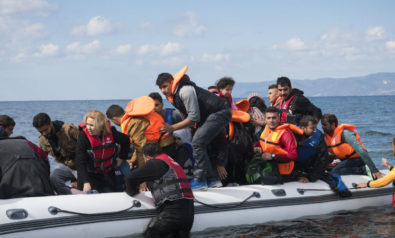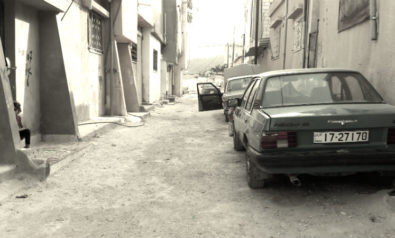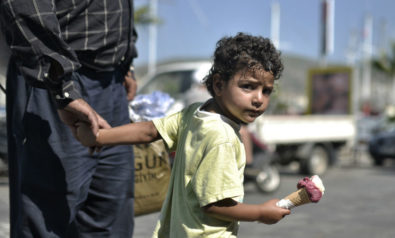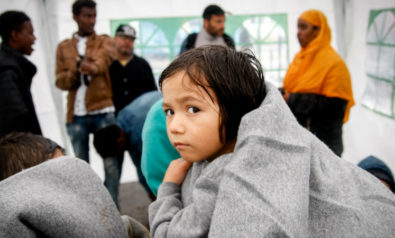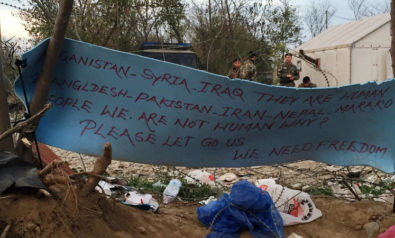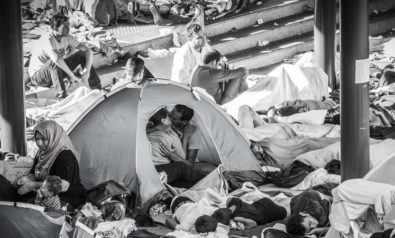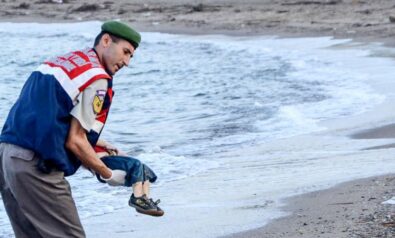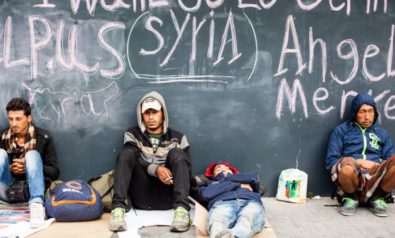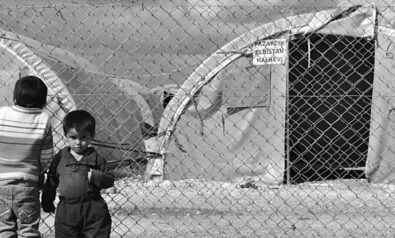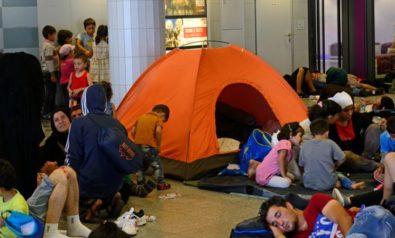World citizens must understand that they have every right to have their say on the global refugee crisis.
The Syrian refugee crisis has been in the headlines of major news outlets over the past week, with pressure mounting on European leaders to take a “moral” stance against their original wishes.
British Prime Minister David Cameron is no exception. With every passing hour, we have been updated with new decisions coming out of Downing Street. Before the tragedy of Aylan Kurdi, the United Kingdom had accepted only 5,000 refugees since 2011, a trifling number compared to some of its European neighbors who have taken in up to 80,000 asylum seekers.
It was the powerful image of the 3-year-old boy in a red t-shirt and black sneakers lying dead on a Turkish shore that shook the world and forced Cameron to up the numbers. First, he announced the UK would accept “thousands more” refugees, and later that solidified to 20,000 by 2020, with Cameron stressing that Britain would act with its “head and its heart.”
But ultimately what made the difference? Was it the devastating image of a Syrian child lying face down on a stone beach? The fact that the media quickly identified him: Aylan Kurdi, 3 years old, from Kobane, Syria. Or was it the outcry from millions across the world who couldn’t fathom what they were seeing, resulting in #refugeeswelcome trending on Twitter?
The answer is simple: all of the above.
Human beings relate to faces, names and stories, not to cold statistics. If there is no direct link between those suffering and an audience, then those witnessing tend to become distant and apathetic. Occasionally, we will find a minute or two to question the world and cringe at what it has become, using adjectives like “evil” and “ruthless” to describe what we are seeing, but soon after we shrug it off and go on with our lives.
It was a poster held up by a demonstrator in my hometown of Vienna that caught my eye. It read: “My nationality? Human!”
Having been born to an immigrant family and raised in Austria, I faced some racism growing up. However, my perception shifted when I watched over 20,000 demonstrators march down the streets of Vienna, demanding that their government do more to welcome refugees. It brought two things to mind. First, how far we have come from the double-standards and prejudice I encountered as a child. Second, how powerful and positive the voice of citizens can be in the midst of calamity.
The world has watched as governments react to the crisis. German Chancellor Angela Merkel was the first European leader to waive European Union (EU) rules, stating that no refugee who entered Germany would be turned away. Only a few others followed her path. However, with so much emphasis on EU governments, we forget the millions of ordinary people who have taken action to call their governments to task—they are the real drivers behind change.
European citizens are picking up where governments are falling short. They are organizing rallies and demonstrating in support of refugees, knowing that their voice will make a difference.
Icelanders campaigned for their government to accept more refugees and opened up their homes to those fleeing the Syrian War. In Germany, there was an outpouring of support, with hundreds coming to greet and help refugees arriving at train stations in Munich and Frankfurt. British citizens are signing petitions calling for the UK to take its fair share of Syrians, and many are driving vans filled with shoes, tents and other essentials to refugee camps. Recently, volunteers have launched an Airbnb for refugees that allows anyone in Europe to offer space in their homes to those fleeing wars.
It is clear: People have a strong and powerful presence and their voice is roaring.
So, while some governments and political leaders have taken the lead, such as Angela Merkel who has been dubbed the “mother of compassion,” others are sitting on the fence and waiting to see what happens next.
It is no secret that right-wing sentiments in Europe have soared in recent years. This has impacted government decisions in Britain, France and Hungary, which is one reason why many are reluctant to open their doors to Muslim refugees fleeing the Middle East.
But one demonstrator in Vienna put it best: “Governments can’t make such decisions without the will of the people.”
He is right. European and world citizens must understand that they have every right to have their say on this human catastrophe. It is up to us, the people, to seize the moment.
*[This article was originally published by Gulf Magazine.]
The views expressed in this article are the author’s own and do not necessarily reflect Fair Observer’s editorial policy.
Photo Credit: Freedom House / Flickr
 We bring you perspectives from around the world. Help us to inform and educate. Your donation is tax-deductible. Join over 400 people to become a donor or you could choose to be a sponsor.
We bring you perspectives from around the world. Help us to inform and educate. Your donation is tax-deductible. Join over 400 people to become a donor or you could choose to be a sponsor.
Support Fair Observer
We rely on your support for our independence, diversity and quality.
For more than 10 years, Fair Observer has been free, fair and independent. No billionaire owns us, no advertisers control us. We are a reader-supported nonprofit. Unlike many other publications, we keep our content free for readers regardless of where they live or whether they can afford to pay. We have no paywalls and no ads.
In the post-truth era of fake news, echo chambers and filter bubbles, we publish a plurality of perspectives from around the world. Anyone can publish with us, but everyone goes through a rigorous editorial process. So, you get fact-checked, well-reasoned content instead of noise.
We publish 2,500+ voices from 90+ countries. We also conduct education and training programs
on subjects ranging from digital media and journalism to writing and critical thinking. This
doesn’t come cheap. Servers, editors, trainers and web developers cost
money.
Please consider supporting us on a regular basis as a recurring donor or a
sustaining member.
Will you support FO’s journalism?
We rely on your support for our independence, diversity and quality.




